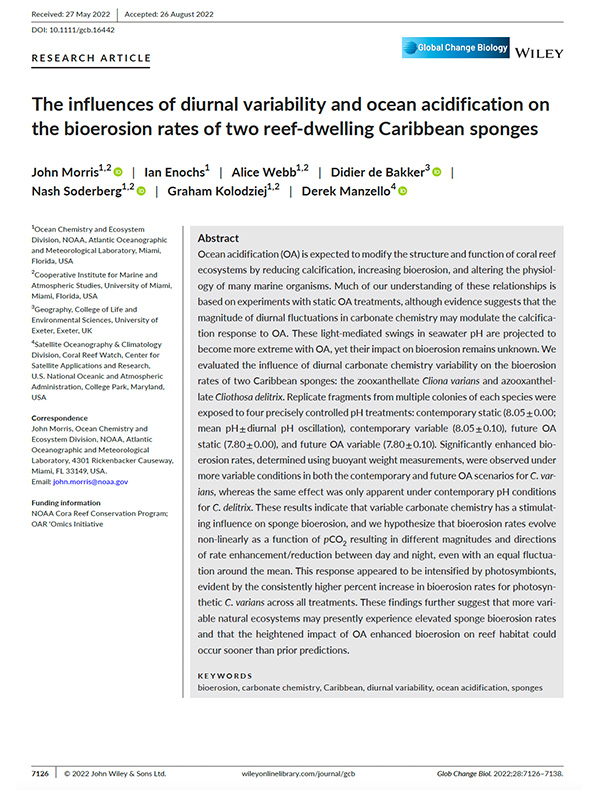Morris, J., Enochs, I., Webb, A., de Bakker, D., Soderberg, N., Kolodziej, G., & Manzello, D. (2022). The influences of diurnal variability and ocean acidification on the bioerosion rates of two reef‐dwelling Caribbean sponges. Global Change Biology.
Abstract: Ocean acidification (OA) is expected to modify the structure and function of coral reef ecosystems by reducing calcification, increasing bioerosion, and altering the physiology of many marine organisms. Much of our understanding of these relationships is based on experiments with static OA treatments, although evidence suggests that the magnitude of diurnal fluctuations in carbonate chemistry may modulate the calcification response to OA. These light-mediated swings in seawater pH are projected to become more extreme with OA, yet their impact on bioerosion remains unknown. We evaluated the influence of diurnal carbonate chemistry variability on the bioerosion rates of two Caribbean sponges: the zooxanthellate Cliona varians and azooxanthellate Cliothosa delitrix. Replicate fragments from multiple colonies of each species were exposed to four precisely controlled pH treatments: contemporary static (8.05 ± 0.00; mean pH ± diurnal pH oscillation), contemporary variable (8.05 ± 0.10), future OA static (7.80 ± 0.00), and future OA variable (7.80 ± 0.10)…
